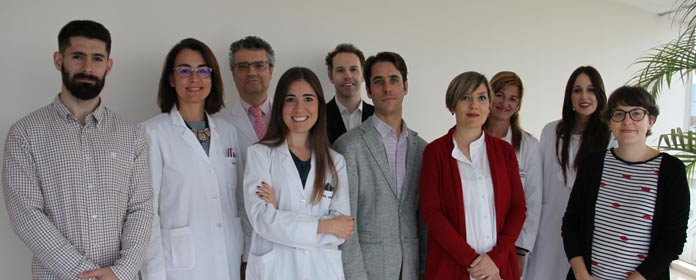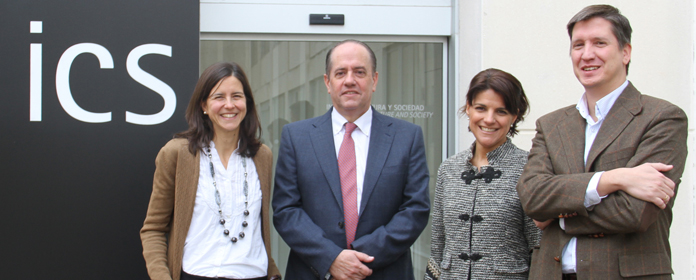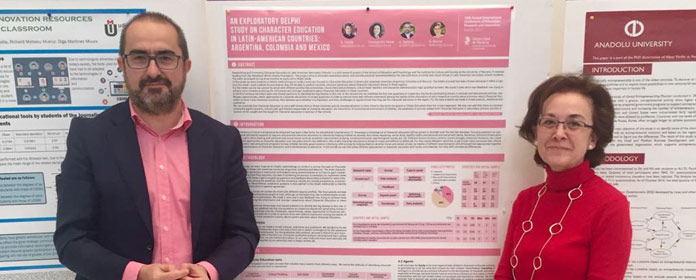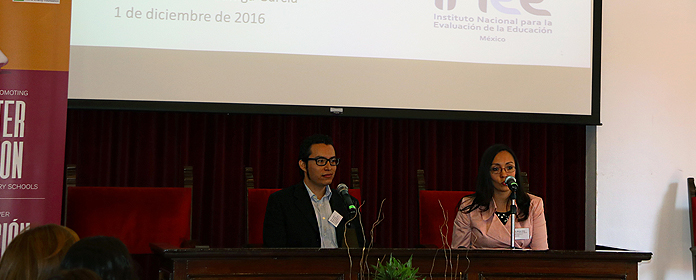"Democratic education goes hand in hand with moral education"
Marisa Meza, professor at the Pontifical Catholic University of Chile, gave opening remarks at the recent Character Education in Latin America conference
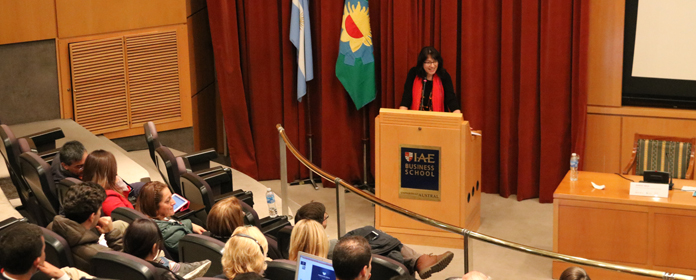
FOTO: Cedida
Professor Meza spoke on training teachers to impart moral and democratic education to their students in her opening remarks at the ‘Character Education in Latin America: Challenges and Opportunities’ conference organized by the University of Navarra in collaboration with the Austral University (Argentina) and with funding from the Templeton World Charity Foundation. Marisa Meza, professor at the School of Education of the Pontifical Catholic University of Chile, gave these opening remarks.
There, she advocated for educating students in "the basic values of freedom and equality and civic maturity that allow for participation in common life." She emphasized that "democratic education goes hand in hand with moral education."
Professor Meza insisted that these issues are especially relevant in Latin America, where she indicated that social stability is a recurring theme.
She presented an international study on civic and citizen education from the International Association for the Evaluation of Educational Achievement, which analyzes the extent to which education systems prepare young people to assume citizenship with a moral perspective, emphasizing human rights, social justice and active participation. The study includes random samples of 25,000 students from 900 schools.
Expand the circle of moral dutiesThis research reveals that young people tend to restrict their moral duties to their closest setting– family, friends, etc.— and consider it acceptable to break the rules when it benefits them. Professor Meza insisted on the need to "provide students with experiences that allow them to extend this circle of duties to others. We must encourage associations of collaboration, care and help with the environment, neighborhood, community and country..."
The expert from the Pontifical Catholic University of Chile insisted on the benefits that society reaps when people have greater civic knowledge: "There is less justification of authoritarian regimes, less acceptance of authoritarian governmental practices, less acceptance of corrupt practices, greater confidence in schools, less acceptance of violence, a greater degree of empathy and greater acceptance of diversity."
In conclusion, Professor Meza emphasized the need to "promote strategies, practices, experiences and knowledge to reinvigorate democratic values in future teachers for both themselves and for their teaching." She recalled that the school environment is an ideal environment for this: "Trusting in the school allows for action from a privileged place."
Marisa Meza gave these remarks in the framework of an international conference on Character Education in Latin America that brought together researchers, teachers and educational policy makers. It took place on June 13 and 14, 2018 at IAE Business School of the Austral University in Pilar, Argentina.
This event was sponsored by the ‘Researching and promoting character education in Latin American secondary schools’ program, a joint research project of the School of Education and Psychology and the Institute for Culture and Society (ICS). It receives funding from the Templeton World Charity Foundation.

